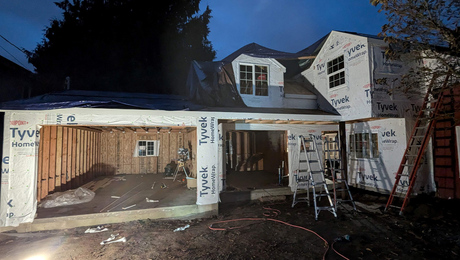Definitely you need an engineer. This kind of job will require a building permit, and most jurisdictions won’t issue one without plans wet stamped by an engineer. If you can measure and draw the existing conditions accurately and thoroughly enough, your engineer may be able to do the job without the expense of a site visit. You’d have to describe completely everything that the beam supports so the engineer can figure out how much load there is on it.
— J.S.















Replies
Wiley --
It also matters where your engineer is licensed. My SIL's fiancee is an engineer, but I can't use him here in Los Angeles because his license is for Alberta, Canada. I had to get a local California guy, even though it was all done on paper.
-- J.S.
Grizzly, try calling one of the big manufactures of glue lams. I live in Chicago where US GluLam is located and they have engineers that will run the numbers for you for free. They've helped me out with a couple of structural projects. -Ed
Wiley-
A professional engineer is only able to do work in the state he holds a license in. Many hold licenses in more than one state, but they can only work in those states.
As far as the magazine-bought home plans are concerned, most are not sealed by a licensed architect, and many jurisdictions will not let the plans be used for a permit application. This is something that most buyers of the plans don't realize (unless they read he microscopic print in the ads), and don't find out until they try to submit the plans to the building department. Then they find out they need to pay an architect to review and seal the plans, and many architects aren't willing to do so (they assume complete liability for someone else's plans if they do). That's the main reason not to waste your money on magazine plans.
Bob
> why can't a structural guy be able to do work in another state?
Probably because the state governments make money off the license fees. Gravity and the other laws of physics are pretty much the same worldwide. The only significant regional differences would be seismic and wind loading, and climate. If those considerations were dealt with by distributing the necessary information, it would make sense to put engineering licensing on a national rather than state level. Same with dentists, auctioneers, and lots of other regulated professions.
-- J.S.
California's earthquake regulations require additional testing and licensing to practice structural work. Everywhere else may be the same, but most jurisdictions want to see their state seal on plans and calculations. Since the actual sealing is the main charge on small jobs, it saves to just get a licensed engineer in your state. ...that's not a mistake, it's rustic